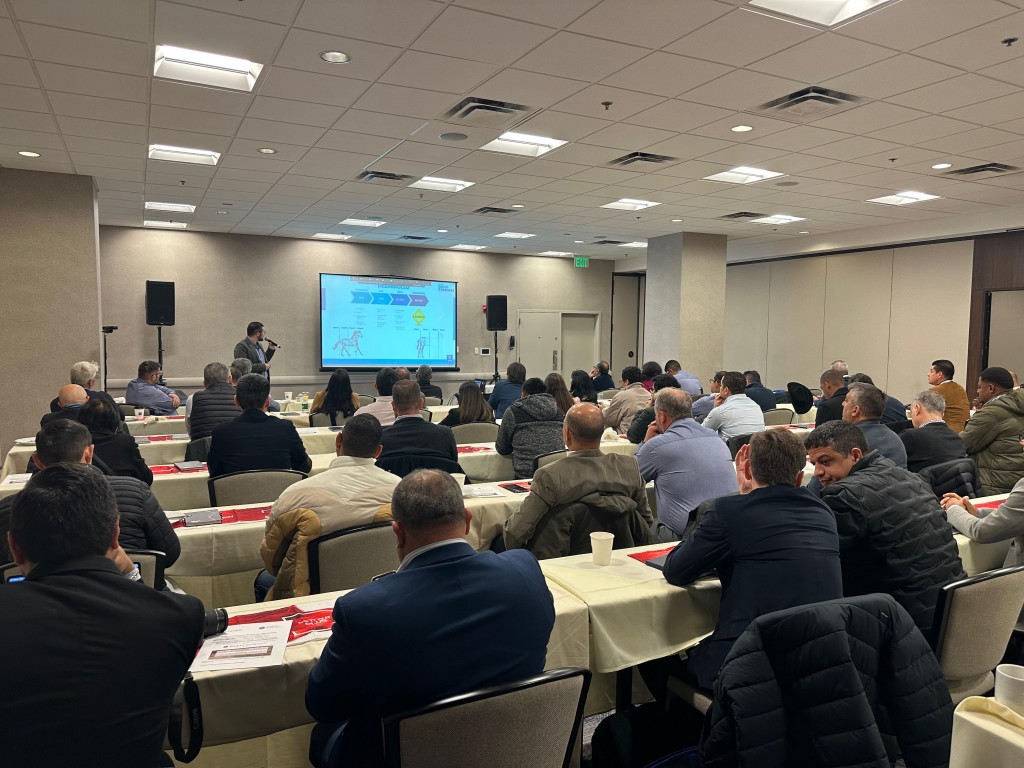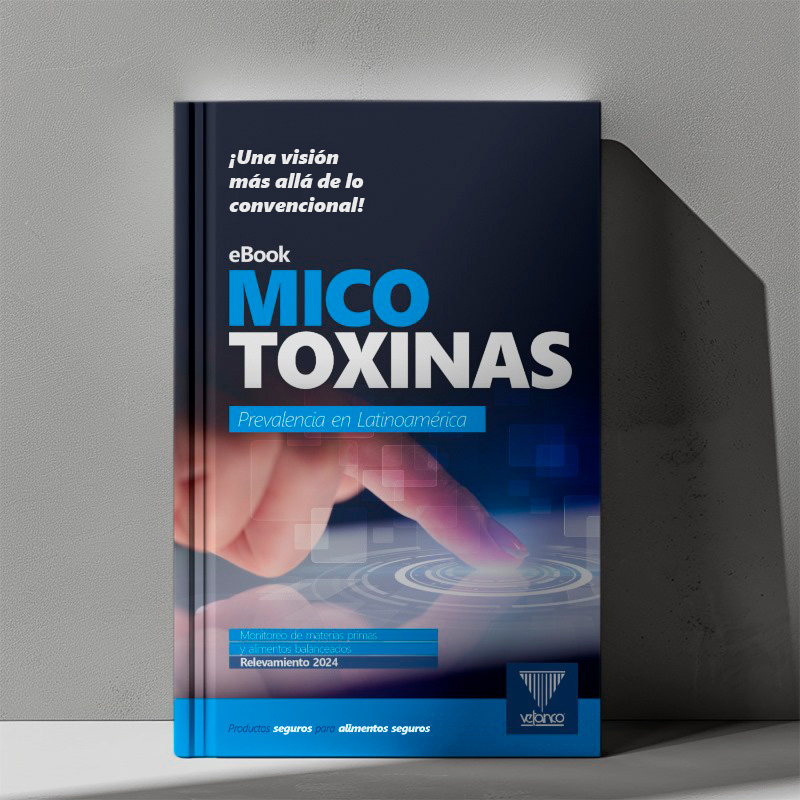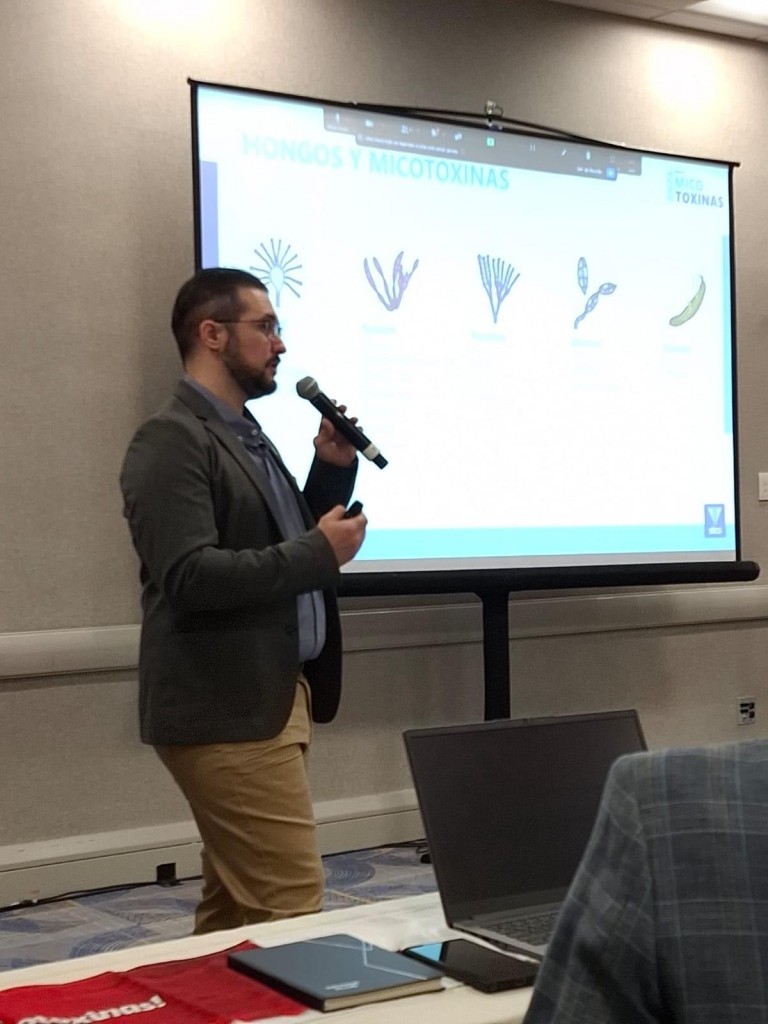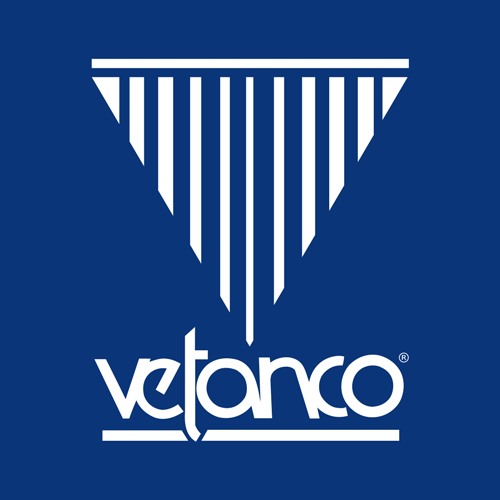Vetanco, a leading company in animal health, introduced its ebook: Mycotoxins: Prevalence in Latin America during 2024 – Monitoring of Raw Materials and Feed.
In Atlanta, during the International Production & Processing Expo (IPPE 2025), the world’s leading annual event for the poultry, egg, meat, and animal feed industry, Vetanco launched its ebook “Mycotoxins: Prevalence in Latin America during 2024 – Monitoring of Raw Materials and Feed,” an in-depth study of the impact of mycotoxins on poultry health.
The event, held last January 28, 2025, gathered industry experts and collaborators in a virtual meeting to share the findings of the annual analysis on mycotoxins, a growing concern in Latin America.

Analysis and Key Findings
The survey conducted by Vetanco in 2024 included more than 12,385 measurements, a record number in the company’s history, consolidating its position as a leader in mycotoxin monitoring in the region. This year, Colombia joined as the ninth country to participate in the study, further broadening the scope of its results.

According to Vetanco’s President, Horacio Mancini, this type of survey is key for our clients to successfully address current challenges, as it provides the industry with valuable insights on how mycotoxin trends are changing in Latin America. }

Our Technical Manager for Poultry, Bruno Vecchi Galenda, underscored in his speech the seriousness of the current situation, with a particular focus on the issue of co-contamination, which accounts for 70% of the cases analyzed. As a result, the availability of monitoring, control, and tracking tools is essential to mitigate the risks.
On its end, Mariano Enrique Fernandez Miyakawa, Leader of Innovation and In-Feed Development, presented the scientific progress related to the action of silymarin and how we can eventually improve the application of these products.

The study also revealed how the climatic conditions that characterized 2024, especially in the southern part of the continent, had a correlation with the prevalence and types of mycotoxins. The droughts and record temperatures in Argentina and Brazil, followed by heavy rainfall over short periods of time, only contributed to the growth of Fusarium spp. and the production of one of its main mycotoxins, Fumonisin, which increased in comparison to 2023 in countries such as Argentina, Uruguay, Ecuador, Bolivia, and Peru.
However, as is commonly the case, Fusarium never produces just one mycotoxin and is capable of generating both Fumonisin and Zearalenone, along with Trichothecenes. Although the amount of these toxins will depend on the species and grain affected, normally several toxins can be observed at the same time. This is clearly what happened, as there was an increase in the percentage of co-contaminations, which rose to 68%.
Considering the possibility of multiple toxins being present in the same grain, combined with the high prevalence and concentration of Fumonisin, Vetanco emphasized the need to use cutting-edge tools for toxin control, such as enzymatic inactivators, and highlighted Detoxa Plus, which continues to be the primary choice for the holistic management of mycotoxins, necessary to keep animals healthy and to help them reach their full potential.
“For us, it is vital to offer solutions that help our customers maintain animal health and optimize animal performance,” said Ariel Sugezky, Vetanco’s Commercial Director of Poultry.
Were present at the launch: Horacio Mancini, Vetanco’s Vice President; Martin Cardaci, International Business Manager; Hernán González, Poultry Business Unit Manager; Thiago Moreira Tejkowski, Marketing Manager; Ariel Sugezky, Commercial Director of Poultry; Bruno Vecchi Galenda, Technical Manager of Poultry; and Mariano Enrique Fernandez Miyakawa, Leader of Innovation and in-Feed.
For more results from this study and mycotoxin trends in Latin America, please visit the complete eBook here.
